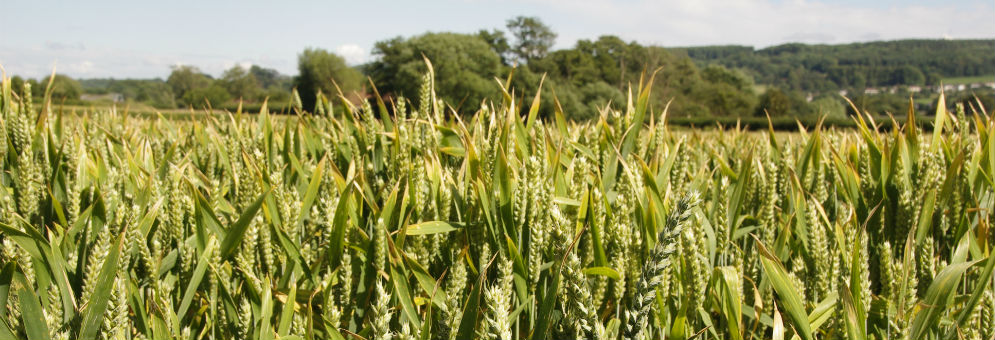-
Better policy translation to achieve just net zero transitions locally
A just transition to net zero requires policymakers and practitioners at the local level to be able to draw on a wide range of national policy instruments. This brief makes recommendations on how the policy translation process from the national to the local level can be improved.
-
 Increasing renewable distributed generation for resilient energy communities.
Increasing renewable distributed generation for resilient energy communities.
Decarbonization of the UK energy sector must be intensified in order to achieve current targets. One of the existing challenges to accelerate decarbonization in energy systems is a lack of enabling infrastructure, including construction and upgrades needed to produce, transport, and store clean energy in different forms. This lack of infrastructure creates delays and restrictions for connecting new renewable generation projects to the grid.
Although renewable energy is affordable and widely available, the initial cost in enabling infrastructure can be prohibitive for certain customers, including community groups and vulnerable customers. These high costs leave them unable to deploy renewable energy technologies and benefit from local renewable energy production and consumption.
-
 Improving the social acceptability of Highly Protected Marine Areas (HMPAs)
Improving the social acceptability of Highly Protected Marine Areas (HMPAs)
Conservation and restoration of coastal and marine environments are key environmental targets.
-
 How green jobs and skills can ensure a just transition for young people
How green jobs and skills can ensure a just transition for young people
High numbers of young people not in education, employment, or training highlight the need to prioritize green skills agendas to help them find secure work in a net-zero future.
-
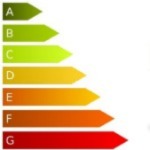 How the Great British Insulation scheme can help the most vulnerable
How the Great British Insulation scheme can help the most vulnerable
The improved energy efficiency of UK homes is one of the key strategic priorities of the newly-created Department for Energy Security and Net Zero (DESNZ).
-
 Encouraging take up of low carbon heating solutions requires better information provision, new value creation and financing models.
Encouraging take up of low carbon heating solutions requires better information provision, new value creation and financing models.
As part of the UK Government’s net-zero strategy, by 2025, all gas boiler installations are due to be phased out for new build properties, and phased out completely by 2035.
-
 The skills required for the ‘smart local energy systems’ of the future need new approaches to training and qualifications.
The skills required for the ‘smart local energy systems’ of the future need new approaches to training and qualifications.
To support the UK Government’s net zero commitment, the energy system must become increasingly decarbonised, digitalised and localised and the skills required to develop, install and operate its components are changing.
-
 Digital inclusion in the energy system: How do we ensure the opportunities and benefits of digitalisation can be accessed by everyone?
Digital inclusion in the energy system: How do we ensure the opportunities and benefits of digitalisation can be accessed by everyone?
Digital technologies play an increasingly important role in how households engage with the energy system. They promise significant benefits, facilitating greater efficiency and flexibility, and potentially better outcomes for consumers (e.g., cheaper bills). However, this digitalisation also risks deepening inequalities in the ability of households to access sufficient energy to ensure health and wellbeing, especially for people without the tools and skills to engage with new digital services and technologies.
-
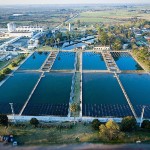 Regulating digitisation of critical infrastructures: we need diverse experts to translate cyber security risks into the sector-specific contexts
Regulating digitisation of critical infrastructures: we need diverse experts to translate cyber security risks into the sector-specific contexts
As digital innovations proliferate across critical infrastructure sectors, we begin to regulate them to ensure reliable and safe delivery of essential services like water, energy or transport. The Network and Information Systems Security (NIS) Directive, implemented across the EU and the UK, is a prime example of such efforts. It is a novel regulatory response to the increased interconnection of industrial computers to the internet.
-
 Telling local stories: New routes of climate change and nature communication in Bristol
Telling local stories: New routes of climate change and nature communication in Bristol
Awareness of environmental issues, calls to action, and changing behaviour patterns are growing. 86% of Bristol citizens express concern about climate change, and concern remains high across age and ethnicity, and the city’s 34 council wards.
-
 Bristol in Brief: Atmospheric measurements improve global emissions reporting
Bristol in Brief: Atmospheric measurements improve global emissions reporting
In 2019, new emissions of the internationally banned ozone depleting substance, CFC-11, were identified using data from atmospheric measurement stations in Asia. The emissions were in clear breach of international commitments to limit the use of gases that are harmful to the atmosphere. High profile cases like this demonstrate the importance of atmospheric measurements and modelling, to understand whether commitments are being met.
There is an urgent need to expand the use of these measurement and modelling verification techniques, as an important tool to aid international efforts against ozone depletion and climate change.
-
 Mapping science and policy priorities in a Changing Central Arctic Ocean
Mapping science and policy priorities in a Changing Central Arctic Ocean
The Central Arctic Ocean plays a pivotal role in regional and global climate and ocean circulation, and influences UK weather patterns.
-
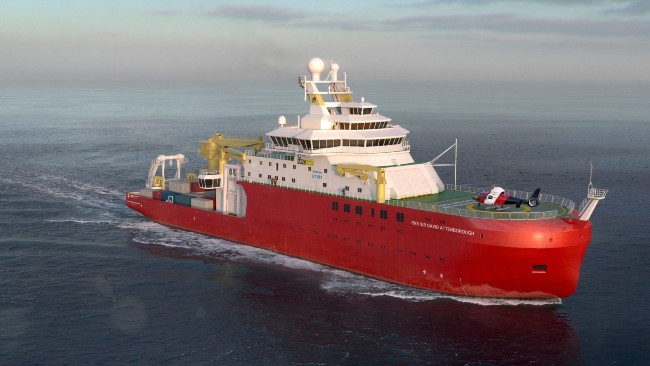 Policy priorities in a Changing Arctic Ocean
Policy priorities in a Changing Arctic Ocean
The research was conducted through a review of the science and policy literature, and consultation with national and international stakeholders. It has produced a comprehensive overview of past, current and future research activity in the Central Arctic Ocean (CAO), and outlined the geopolitical and legal structures governing relationships in the region.
-
 Riding Sunbeams: Powering our trains with solar PV
Riding Sunbeams: Powering our trains with solar PV
In 2019 Riding Sunbeams demonstrated that it is possible to connect solar photovoltaic panels directly into the electrified rail network to power trains. Direct supply of solar power to railway traction systems has never been done before, anywhere in the world. The market and decarbonisation potential for railways and mobility in general is huge.
-
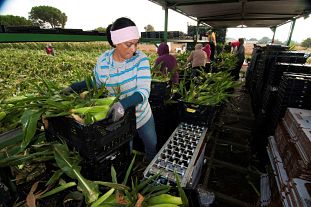 Work and workers should be central in the UK national food strategy
Work and workers should be central in the UK national food strategy
The conversations around the future of food, the Agricultural Bill and the UK national food strategy tend to focus exclusively on people as eaters, forgetting the role that women and men have in farming, harvesting, processing, selling, distributing and disposing of food.
-
 A UK right to food law could tackle food poverty and environmental degradation
A UK right to food law could tackle food poverty and environmental degradation
Around 8.4 million people in the UK struggle to get enough to eat. At the same time, small-scale farmers and local grocery shops are disappearing, the country is increasingly dependent on food imports and healthy food is too often unavailable or unaffordable. Enshrining a right to food in law can end this situation.
-
 Mapping the ‘soft properties’ of cities for effective policy interventions
Mapping the ‘soft properties’ of cities for effective policy interventions
The impressions that people have of a city are often driven by what we call soft properties, its spirit or vibe. But the vast majority of interventions made by policymakers are on the hard properties of a city, such as physical infrastructure and traffic management.
-
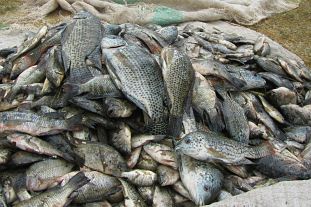 Sustainable fisheries, food security: lessons from tilapia fish in Tanzania
Sustainable fisheries, food security: lessons from tilapia fish in Tanzania
Fish production is increasing to meet the protein demands of a growing human population. However, cross-breeding large-bodied native species with small-bodied non-native species can reduce yields and lead to loss of unique biodiversity, with negative consequences for food security.
-
 Reaping the rewards from UK leadership in farm animal welfare: time for a national strategy
Reaping the rewards from UK leadership in farm animal welfare: time for a national strategy
Research led by the University of Bristol and partners provides the evidence to show that current support for improved animal welfare policy is sustainable and achievable.
-
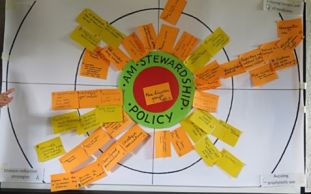 The future of farming policy in the UK: giving farmers a voice in development and delivery
The future of farming policy in the UK: giving farmers a voice in development and delivery
In a range of UK and international projects, the University of Bristol has been exploring how facilitated farmer-led approaches can tackle societal challenges, husbandry issues and market opportunities.
-
 Poo Patrol: Community-led science and action to reduce dog fouling and improve child health
Poo Patrol: Community-led science and action to reduce dog fouling and improve child health
Fouling of public areas by dog faeces has serious public health impacts, not least by discouraging healthy outdoor play.
This research engaged schools and communities to support and monitor their efforts to stimulate behaviour change among dog owners.
-
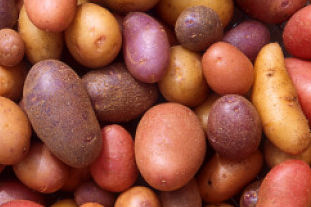 Fresh approach needed towards regulation and support of ‘green’ social enterprises in the emerging new economy
Fresh approach needed towards regulation and support of ‘green’ social enterprises in the emerging new economy
This research focuses on social enterprises responding to climate change and the regulatory barriers and facilitators they encounter.
-
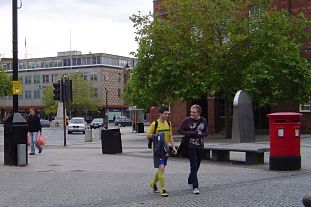 Policies that reduce greenhouse gases can improve human wellbeing
Policies that reduce greenhouse gases can improve human wellbeing
This research assesses the impact of urban policies on human wellbeing.
-
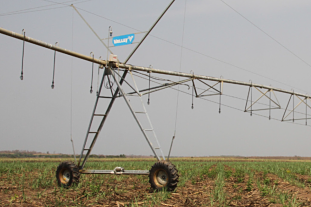 Biofuels and sustainable development: can sustainability standards stop ‘land grabbing’?
Biofuels and sustainable development: can sustainability standards stop ‘land grabbing’?
This research focuses on the extent
to which global sustainability
standards and certification schemes
can prevent ‘land grabs’.
-
 Living near the next Fukushima: public perception of risk affects property value
Living near the next Fukushima: public perception of risk affects property value
This research analyses the changes in nuclear-risk perception in England and Wales subsequent to the Fukushima nuclear accident.
-
 One size won’t fit all: Buildings have diverse effects on health and the environment across Europe and China
One size won’t fit all: Buildings have diverse effects on health and the environment across Europe and China
This particular sub-study of URGENCHE examines environment and health implications of the heat and electricity required by the buildings in: Kuopio, Finland; Basle, Switzerland; Stuttgart, Germany; Thessaloniki, Greece; and Suzhou and Xi’an in China.
-
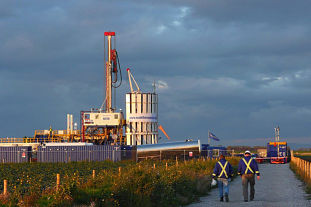 Fear of Fracking: earthquakes linked to shale gas exploration cause house prices to fall
Fear of Fracking: earthquakes linked to shale gas exploration cause house prices to fall
This research examines the change in house prices following the release of drilling licenses in 2008.
-
 Energy planning in cities requires holistic assessment of both environmental and health impacts
Energy planning in cities requires holistic assessment of both environmental and health impacts
This research has developed a model for analysing energy related policies and their effects both in the city and beyond.
-
 Stakeholders’ participation: a fundamental prerequisite for equitable and functional Marine Protected Areas
Stakeholders’ participation: a fundamental prerequisite for equitable and functional Marine Protected Areas
This academic research on MPAs in Europe emphasises the importance of participatory processes in the establishment and management of MPAs.
-
 Changing Nature: Diversity and Inclusion Training in the Environment Sector
Changing Nature: Diversity and Inclusion Training in the Environment Sector
The UK environment sector is notoriously one of the least diverse and there is a clear need to explore solutions for greater diversity and inclusion in the sector (Bell, 2021:2). Although these issues are well known to people working in the environment sector, there is a lack of time, resources, and actionable knowledge on the topic, which leads to low confidence to overcome systemic exclusion (Boss et. al, 2023).
 Increasing renewable distributed generation for resilient energy communities.
Decarbonization of the UK energy sector must be intensified in order to achieve current targets. One of the existing challenges to accelerate decarbonization in energy systems is a lack of enabling infrastructure, including construction and upgrades needed to produce, transport, and store clean energy in different forms. This lack of infrastructure creates delays and restrictions for connecting new renewable generation projects to the grid. Although renewable energy is affordable and widely available, the initial cost in enabling infrastructure can be prohibitive for certain customers, including community groups and vulnerable customers. These high costs leave them unable to deploy renewable energy technologies and benefit from local renewable energy production and consumption.
Increasing renewable distributed generation for resilient energy communities.
Decarbonization of the UK energy sector must be intensified in order to achieve current targets. One of the existing challenges to accelerate decarbonization in energy systems is a lack of enabling infrastructure, including construction and upgrades needed to produce, transport, and store clean energy in different forms. This lack of infrastructure creates delays and restrictions for connecting new renewable generation projects to the grid. Although renewable energy is affordable and widely available, the initial cost in enabling infrastructure can be prohibitive for certain customers, including community groups and vulnerable customers. These high costs leave them unable to deploy renewable energy technologies and benefit from local renewable energy production and consumption. Improving the social acceptability of Highly Protected Marine Areas (HMPAs)
Conservation and restoration of coastal and marine environments are key environmental targets.
Improving the social acceptability of Highly Protected Marine Areas (HMPAs)
Conservation and restoration of coastal and marine environments are key environmental targets. How green jobs and skills can ensure a just transition for young people
High numbers of young people not in education, employment, or training highlight the need to prioritize green skills agendas to help them find secure work in a net-zero future.
How green jobs and skills can ensure a just transition for young people
High numbers of young people not in education, employment, or training highlight the need to prioritize green skills agendas to help them find secure work in a net-zero future. How the Great British Insulation scheme can help the most vulnerable
The improved energy efficiency of UK homes is one of the key strategic priorities of the newly-created Department for Energy Security and Net Zero (DESNZ).
How the Great British Insulation scheme can help the most vulnerable
The improved energy efficiency of UK homes is one of the key strategic priorities of the newly-created Department for Energy Security and Net Zero (DESNZ). Encouraging take up of low carbon heating solutions requires better information provision, new value creation and financing models.
As part of the UK Government’s net-zero strategy, by 2025, all gas boiler installations are due to be phased out for new build properties, and phased out completely by 2035.
Encouraging take up of low carbon heating solutions requires better information provision, new value creation and financing models.
As part of the UK Government’s net-zero strategy, by 2025, all gas boiler installations are due to be phased out for new build properties, and phased out completely by 2035. The skills required for the ‘smart local energy systems’ of the future need new approaches to training and qualifications.
To support the UK Government’s net zero commitment, the energy system must become increasingly decarbonised, digitalised and localised and the skills required to develop, install and operate its components are changing.
The skills required for the ‘smart local energy systems’ of the future need new approaches to training and qualifications.
To support the UK Government’s net zero commitment, the energy system must become increasingly decarbonised, digitalised and localised and the skills required to develop, install and operate its components are changing. Digital inclusion in the energy system: How do we ensure the opportunities and benefits of digitalisation can be accessed by everyone?
Digital technologies play an increasingly important role in how households engage with the energy system. They promise significant benefits, facilitating greater efficiency and flexibility, and potentially better outcomes for consumers (e.g., cheaper bills). However, this digitalisation also risks deepening inequalities in the ability of households to access sufficient energy to ensure health and wellbeing, especially for people without the tools and skills to engage with new digital services and technologies.
Digital inclusion in the energy system: How do we ensure the opportunities and benefits of digitalisation can be accessed by everyone?
Digital technologies play an increasingly important role in how households engage with the energy system. They promise significant benefits, facilitating greater efficiency and flexibility, and potentially better outcomes for consumers (e.g., cheaper bills). However, this digitalisation also risks deepening inequalities in the ability of households to access sufficient energy to ensure health and wellbeing, especially for people without the tools and skills to engage with new digital services and technologies. Regulating digitisation of critical infrastructures: we need diverse experts to translate cyber security risks into the sector-specific contexts
As digital innovations proliferate across critical infrastructure sectors, we begin to regulate them to ensure reliable and safe delivery of essential services like water, energy or transport. The Network and Information Systems Security (NIS) Directive, implemented across the EU and the UK, is a prime example of such efforts. It is a novel regulatory response to the increased interconnection of industrial computers to the internet.
Regulating digitisation of critical infrastructures: we need diverse experts to translate cyber security risks into the sector-specific contexts
As digital innovations proliferate across critical infrastructure sectors, we begin to regulate them to ensure reliable and safe delivery of essential services like water, energy or transport. The Network and Information Systems Security (NIS) Directive, implemented across the EU and the UK, is a prime example of such efforts. It is a novel regulatory response to the increased interconnection of industrial computers to the internet. Telling local stories: New routes of climate change and nature communication in Bristol
Awareness of environmental issues, calls to action, and changing behaviour patterns are growing. 86% of Bristol citizens express concern about climate change, and concern remains high across age and ethnicity, and the city’s 34 council wards.
Telling local stories: New routes of climate change and nature communication in Bristol
Awareness of environmental issues, calls to action, and changing behaviour patterns are growing. 86% of Bristol citizens express concern about climate change, and concern remains high across age and ethnicity, and the city’s 34 council wards. Bristol in Brief: Atmospheric measurements improve global emissions reporting
In 2019, new emissions of the internationally banned ozone depleting substance, CFC-11, were identified using data from atmospheric measurement stations in Asia. The emissions were in clear breach of international commitments to limit the use of gases that are harmful to the atmosphere. High profile cases like this demonstrate the importance of atmospheric measurements and modelling, to understand whether commitments are being met. There is an urgent need to expand the use of these measurement and modelling verification techniques, as an important tool to aid international efforts against ozone depletion and climate change.
Bristol in Brief: Atmospheric measurements improve global emissions reporting
In 2019, new emissions of the internationally banned ozone depleting substance, CFC-11, were identified using data from atmospheric measurement stations in Asia. The emissions were in clear breach of international commitments to limit the use of gases that are harmful to the atmosphere. High profile cases like this demonstrate the importance of atmospheric measurements and modelling, to understand whether commitments are being met. There is an urgent need to expand the use of these measurement and modelling verification techniques, as an important tool to aid international efforts against ozone depletion and climate change. Mapping science and policy priorities in a Changing Central Arctic Ocean
The Central Arctic Ocean plays a pivotal role in regional and global climate and ocean circulation, and influences UK weather patterns.
Mapping science and policy priorities in a Changing Central Arctic Ocean
The Central Arctic Ocean plays a pivotal role in regional and global climate and ocean circulation, and influences UK weather patterns. Policy priorities in a Changing Arctic Ocean
The research was conducted through a review of the science and policy literature, and consultation with national and international stakeholders. It has produced a comprehensive overview of past, current and future research activity in the Central Arctic Ocean (CAO), and outlined the geopolitical and legal structures governing relationships in the region.
Policy priorities in a Changing Arctic Ocean
The research was conducted through a review of the science and policy literature, and consultation with national and international stakeholders. It has produced a comprehensive overview of past, current and future research activity in the Central Arctic Ocean (CAO), and outlined the geopolitical and legal structures governing relationships in the region. Riding Sunbeams: Powering our trains with solar PV
In 2019 Riding Sunbeams demonstrated that it is possible to connect solar photovoltaic panels directly into the electrified rail network to power trains. Direct supply of solar power to railway traction systems has never been done before, anywhere in the world. The market and decarbonisation potential for railways and mobility in general is huge.
Riding Sunbeams: Powering our trains with solar PV
In 2019 Riding Sunbeams demonstrated that it is possible to connect solar photovoltaic panels directly into the electrified rail network to power trains. Direct supply of solar power to railway traction systems has never been done before, anywhere in the world. The market and decarbonisation potential for railways and mobility in general is huge. Work and workers should be central in the UK national food strategy
The conversations around the future of food, the Agricultural Bill and the UK national food strategy tend to focus exclusively on people as eaters, forgetting the role that women and men have in farming, harvesting, processing, selling, distributing and disposing of food.
Work and workers should be central in the UK national food strategy
The conversations around the future of food, the Agricultural Bill and the UK national food strategy tend to focus exclusively on people as eaters, forgetting the role that women and men have in farming, harvesting, processing, selling, distributing and disposing of food. A UK right to food law could tackle food poverty and environmental degradation
Around 8.4 million people in the UK struggle to get enough to eat. At the same time, small-scale farmers and local grocery shops are disappearing, the country is increasingly dependent on food imports and healthy food is too often unavailable or unaffordable. Enshrining a right to food in law can end this situation.
A UK right to food law could tackle food poverty and environmental degradation
Around 8.4 million people in the UK struggle to get enough to eat. At the same time, small-scale farmers and local grocery shops are disappearing, the country is increasingly dependent on food imports and healthy food is too often unavailable or unaffordable. Enshrining a right to food in law can end this situation. Mapping the ‘soft properties’ of cities for effective policy interventions
The impressions that people have of a city are often driven by what we call soft properties, its spirit or vibe. But the vast majority of interventions made by policymakers are on the hard properties of a city, such as physical infrastructure and traffic management.
Mapping the ‘soft properties’ of cities for effective policy interventions
The impressions that people have of a city are often driven by what we call soft properties, its spirit or vibe. But the vast majority of interventions made by policymakers are on the hard properties of a city, such as physical infrastructure and traffic management. Sustainable fisheries, food security: lessons from tilapia fish in Tanzania
Fish production is increasing to meet the protein demands of a growing human population. However, cross-breeding large-bodied native species with small-bodied non-native species can reduce yields and lead to loss of unique biodiversity, with negative consequences for food security.
Sustainable fisheries, food security: lessons from tilapia fish in Tanzania
Fish production is increasing to meet the protein demands of a growing human population. However, cross-breeding large-bodied native species with small-bodied non-native species can reduce yields and lead to loss of unique biodiversity, with negative consequences for food security. Reaping the rewards from UK leadership in farm animal welfare: time for a national strategy
Research led by the University of Bristol and partners provides the evidence to show that current support for improved animal welfare policy is sustainable and achievable.
Reaping the rewards from UK leadership in farm animal welfare: time for a national strategy
Research led by the University of Bristol and partners provides the evidence to show that current support for improved animal welfare policy is sustainable and achievable. The future of farming policy in the UK: giving farmers a voice in development and delivery
In a range of UK and international projects, the University of Bristol has been exploring how facilitated farmer-led approaches can tackle societal challenges, husbandry issues and market opportunities.
The future of farming policy in the UK: giving farmers a voice in development and delivery
In a range of UK and international projects, the University of Bristol has been exploring how facilitated farmer-led approaches can tackle societal challenges, husbandry issues and market opportunities. Poo Patrol: Community-led science and action to reduce dog fouling and improve child health
Fouling of public areas by dog faeces has serious public health impacts, not least by discouraging healthy outdoor play. This research engaged schools and communities to support and monitor their efforts to stimulate behaviour change among dog owners.
Poo Patrol: Community-led science and action to reduce dog fouling and improve child health
Fouling of public areas by dog faeces has serious public health impacts, not least by discouraging healthy outdoor play. This research engaged schools and communities to support and monitor their efforts to stimulate behaviour change among dog owners. Fresh approach needed towards regulation and support of ‘green’ social enterprises in the emerging new economy
This research focuses on social enterprises responding to climate change and the regulatory barriers and facilitators they encounter.
Fresh approach needed towards regulation and support of ‘green’ social enterprises in the emerging new economy
This research focuses on social enterprises responding to climate change and the regulatory barriers and facilitators they encounter. Policies that reduce greenhouse gases can improve human wellbeing
This research assesses the impact of urban policies on human wellbeing.
Policies that reduce greenhouse gases can improve human wellbeing
This research assesses the impact of urban policies on human wellbeing. Biofuels and sustainable development: can sustainability standards stop ‘land grabbing’?
This research focuses on the extent to which global sustainability standards and certification schemes can prevent ‘land grabs’.
Biofuels and sustainable development: can sustainability standards stop ‘land grabbing’?
This research focuses on the extent to which global sustainability standards and certification schemes can prevent ‘land grabs’. Living near the next Fukushima: public perception of risk affects property value
This research analyses the changes in nuclear-risk perception in England and Wales subsequent to the Fukushima nuclear accident.
Living near the next Fukushima: public perception of risk affects property value
This research analyses the changes in nuclear-risk perception in England and Wales subsequent to the Fukushima nuclear accident. One size won’t fit all: Buildings have diverse effects on health and the environment across Europe and China
This particular sub-study of URGENCHE examines environment and health implications of the heat and electricity required by the buildings in: Kuopio, Finland; Basle, Switzerland; Stuttgart, Germany; Thessaloniki, Greece; and Suzhou and Xi’an in China.
One size won’t fit all: Buildings have diverse effects on health and the environment across Europe and China
This particular sub-study of URGENCHE examines environment and health implications of the heat and electricity required by the buildings in: Kuopio, Finland; Basle, Switzerland; Stuttgart, Germany; Thessaloniki, Greece; and Suzhou and Xi’an in China. Fear of Fracking: earthquakes linked to shale gas exploration cause house prices to fall
This research examines the change in house prices following the release of drilling licenses in 2008.
Fear of Fracking: earthquakes linked to shale gas exploration cause house prices to fall
This research examines the change in house prices following the release of drilling licenses in 2008. Energy planning in cities requires holistic assessment of both environmental and health impacts
This research has developed a model for analysing energy related policies and their effects both in the city and beyond.
Energy planning in cities requires holistic assessment of both environmental and health impacts
This research has developed a model for analysing energy related policies and their effects both in the city and beyond. Stakeholders’ participation: a fundamental prerequisite for equitable and functional Marine Protected Areas
This academic research on MPAs in Europe emphasises the importance of participatory processes in the establishment and management of MPAs.
Stakeholders’ participation: a fundamental prerequisite for equitable and functional Marine Protected Areas
This academic research on MPAs in Europe emphasises the importance of participatory processes in the establishment and management of MPAs. Changing Nature: Diversity and Inclusion Training in the Environment Sector
The UK environment sector is notoriously one of the least diverse and there is a clear need to explore solutions for greater diversity and inclusion in the sector (Bell, 2021:2). Although these issues are well known to people working in the environment sector, there is a lack of time, resources, and actionable knowledge on the topic, which leads to low confidence to overcome systemic exclusion (Boss et. al, 2023).
Changing Nature: Diversity and Inclusion Training in the Environment Sector
The UK environment sector is notoriously one of the least diverse and there is a clear need to explore solutions for greater diversity and inclusion in the sector (Bell, 2021:2). Although these issues are well known to people working in the environment sector, there is a lack of time, resources, and actionable knowledge on the topic, which leads to low confidence to overcome systemic exclusion (Boss et. al, 2023).